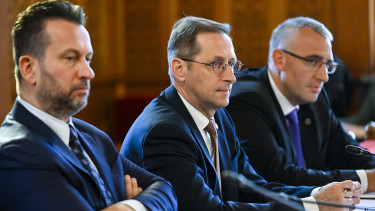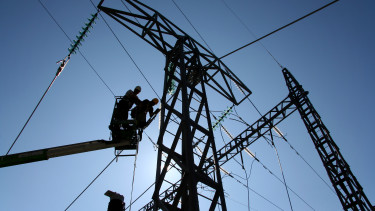Economy
Key decision made that could rewrite EU energy policy
The EIB board agreed on financing of energy and transport projects worth EUR 6.5 billion but its long-awaited decision on the TAP pipeline was the marquee announcement of the package, Euractiv reported.
A decision was actually due in December but the Luxembourg-based bank delayed it, citing a need to look at the project more closely. Funding has been pending for the last two years.
TAP will form the European leg of the Southern Gas Corridor, a large-scale fossil fuel infrastructure project that will cross the Anatolian plain from Azerbaijan, before cutting through northern Greece, Albania and making land in southern Italy.
Estimates suggest that the pipeline would bring 10bcm of gas from Azerbaijan’s Shah Deniz 2 gas field but concerns have already been raised by Russian energy giant Gazprom’s suggestion that it too could supply its gas via TAP.
TAP is one of the European Commission’s Projects of Common Interest (PCI), a list of energy projects earmarked for preferential treatment, as they are considered to be in keeping with the EU’s energy and climate targets.
EIB Vice President Andrew McDowell told Reuters the TAP project would help to offset declining European production, providing a diversified source of gas and displace coal-fired power generation in central and south eastern Europe.
Opposition to the project has been fierce, as activists have highlighted the impact construction work is already having on local communities, as well as the pipeline’s alleged incompatibility with the targets of the Paris climate deal.
NGO network CEE Bankwatch claimed in a recent study that no climate impact assessment has been carried out on the Gas Corridor by any of its investors and warned that the project could be as climate-damaging as coal power, due to methane-leakage and carbon emissions. The World Bank announced in December 2017 that it will no longer finance oil, gas projects from 2019 as pressure builds to switch to clean energy.
The PCI list has been under fire since it was published by the EU executive late last year and a cross-party group of MEPs in January made a formal objection against it. That means that, for the first time, the list will have to go to a vote, scheduled for the next meeting of the energy committee in late February.
Front page photo by Shutterstock
A decision was actually due in December but the Luxembourg-based bank delayed it, citing a need to look at the project more closely. Funding has been pending for the last two years.
TAP will form the European leg of the Southern Gas Corridor, a large-scale fossil fuel infrastructure project that will cross the Anatolian plain from Azerbaijan, before cutting through northern Greece, Albania and making land in southern Italy.
Estimates suggest that the pipeline would bring 10bcm of gas from Azerbaijan’s Shah Deniz 2 gas field but concerns have already been raised by Russian energy giant Gazprom’s suggestion that it too could supply its gas via TAP.
TAP is one of the European Commission’s Projects of Common Interest (PCI), a list of energy projects earmarked for preferential treatment, as they are considered to be in keeping with the EU’s energy and climate targets.
EIB Vice President Andrew McDowell told Reuters the TAP project would help to offset declining European production, providing a diversified source of gas and displace coal-fired power generation in central and south eastern Europe.
Opposition to the project has been fierce, as activists have highlighted the impact construction work is already having on local communities, as well as the pipeline’s alleged incompatibility with the targets of the Paris climate deal.
NGO network CEE Bankwatch claimed in a recent study that no climate impact assessment has been carried out on the Gas Corridor by any of its investors and warned that the project could be as climate-damaging as coal power, due to methane-leakage and carbon emissions. The World Bank announced in December 2017 that it will no longer finance oil, gas projects from 2019 as pressure builds to switch to clean energy.
The PCI list has been under fire since it was published by the EU executive late last year and a cross-party group of MEPs in January made a formal objection against it. That means that, for the first time, the list will have to go to a vote, scheduled for the next meeting of the energy committee in late February.
Front page photo by Shutterstock










